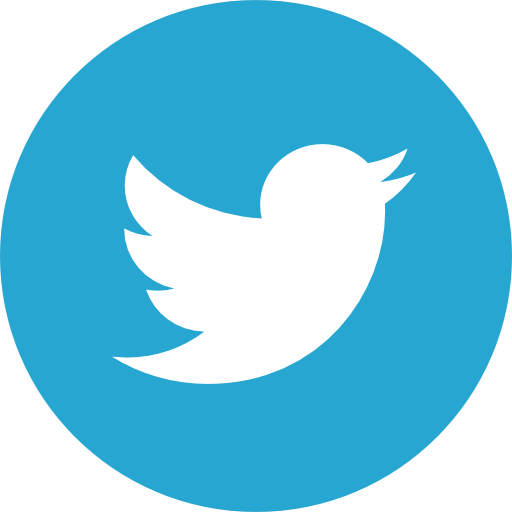Study in Canada After 12th: Explore Undergraduate Options, Tuition Fees, and Post-Study Prospects
Courses in Canada after 12th: Choosing a course after completing 12th is a pivotal decision that shapes your future and career. The subject you choose not only determines your academic path but also influences your professional journey. It’s essential to approach this decision with careful consideration.
Equally significant is the choice of the university or college where you pursue your undergraduate program. In the ever-competitive landscape of Indian universities, rising cut-offs can pose a challenge, causing even the brightest minds to fall short of qualifying. Consequently, an increasing number of students are exploring the option of studying abroad to ensure a high-quality education, free from the constraints of cut-off issues.
Canada has become a preferred destination for students seeking an excellent educational experience. In this article, we will provide valuable insights into various courses available in Canada after completing the 12th grade. Additionally, we will guide you on the process of studying in Canada after 12th, offering a comprehensive understanding of the opportunities that await aspiring students.
Why Study in Canada after 12th?
In a recent survey conducted by Times, seven distinguished Canadian universities secured positions in the prestigious Times Higher Education Top 200 universities. According to the QS World University Ranking 2024, the University of Toronto (#21), the University of British Columbia (#34), and McGill University (#30) have all earned places within the top 50 globally.
Prominent institutions such as the University of Toronto, University of British Columbia, McGill University, McMaster University, University of Waterloo, and University of Montreal have consistently excelled, securing top positions in the QS World University Rankings 2024 across various disciplines.
In the field of Engineering and Technology, these universities have demonstrated exceptional prowess. Similarly, for Arts, Humanities, Medical, and Life Sciences courses, the University of Toronto, the University of British Columbia, and McGill University continue to shine within the top 50 globally.
Choosing Canada for higher education after completing 12th offers students access to world-class institutions that consistently rank among the best globally, providing a conducive environment for academic excellence and future success.
Education System in Canada
Canada has earned its reputation as a preferred destination for international students, boasting an education system recognized as one of the finest globally. Canadian universities stand out not only for their world-class facilities and experienced faculty but also for the captivating landscapes they offer. Students flock to Canada not just for academic excellence but also for the chance to work during or after completing their courses, the welcoming communities, and the special healthcare benefits catered to their needs.
A distinguishing feature of Canada’s education system is that a valid study permit is sufficient for students to secure employment post-graduation, eliminating the need for a separate work permit. For those intending to extend their stay, a work visa becomes necessary. Embracing the diversity of seasonal changes, Canada offers a plethora of activities for each season, ranging from sailing and spring festivals to hiking, skiing, or sledging.
Undergraduate Certificate and Diploma Courses in Canada Post 12th
Canada warmly welcomes a diverse array of international students for both undergraduate and postgraduate studies. In addition to full-time courses, Canadian universities provide Diploma courses (1-3 years), PG Diploma courses (1-2 years), and Certificate and Vocational training courses (1 year). The spectrum of medical courses available after 12th includes MBBS, nursing, physiotherapy, dental surgery, homoeopathy, and alternative medicine. Non-medical courses cover disciplines such as management, science, engineering, hotel management, economics, political science, and more.
Canada offers a comprehensive range of undergraduate courses, providing students with diverse options to pursue their academic and career aspirations.
Management Courses in Canada After 12th
Canada stands tall as a coveted destination for international students aspiring to pursue management courses, particularly in esteemed business schools. Tailored to meet the aspirations of Indian students, Canada offers a diverse range of undergraduate courses, making it an optimal choice for those envisioning managerial professions or nurturing entrepreneurial ideas.
Bachelor of Business Administration (BBA): The Path to Future Leadership
For undergraduate aspirants, a BBA (Bachelor of Business Administration) is the gateway to a promising managerial career. The following full-time BBA courses are available, allowing students to specialize in their area of interest:
- BBA (Supply Chain Management)
- BBA (HR Management)
- BBA (Accounting)
- BBA (Finance)
- BBA (Retail Management)
- BBA (Marketing)
UG Diploma in Management Programs: Crafting Skills for Success
Students with a keen interest in management can also explore UG Diploma programs, each designed to impart specialized knowledge and skills. The available options for UG Diploma in management programs include:
- Diploma in Business Administration (HR)
- Diploma in Business Administration (Finance)
- Diploma in Business Administration (Marketing)
- Diploma in Office Administration
Medical Courses in Canada After 12th
Exploring medical courses in Canada after the 12th grade opens up diverse opportunities for aspiring healthcare professionals. Here are some prominent courses:
- MDCM (similar to MBBS)
- BSc Rehabilitation Science Occupational Therapy
- BSc Rehabilitation Science Physical Therapy
- Biostatistics and Occupational Health
- BSc Medical Radiation Sciences
- Bachelor of Kinesiology (BKin)
- BASc Biomedical Engineering
- BMLSc (Medical Laboratory Science)
- BSc Radiation Therapy
- Osteopathic Medicine
Commerce Courses in Canada After 12th
For those inclined towards commerce, Canada offers a spectrum of courses after the 12th grade. Here are some noteworthy options:
- BCom (Finance, Marketing, Accounting, Taxation, Advertising)
- BCA or Bachelor of Computer Applications
- BA LLB
- BCM (Bachelor of Commerce)
- Degree in Cost Accounting
- Diploma in HR Management, Business Administration, and Hotel Management
- Chartered Accountancy (CA)
- Company Secretary (CS)
- Animation and Multimedia Courses
- Journalism
- Fashion Designing
- Hotel Management
Science Courses in Canada After 12th
Engineering Courses:
- B. E/ B. Tech
- Bachelor of Architecture (B. Arch)
- B. Sc. (Science)
- BCA (IT and Software)
- B. Sc. (IT and Software)
- MBBS
- B. Pharma
- Post Basic B. Sc. Nursing
- Mechanical Engineering
- Civil Engineering
- Geological Engineering
- Biomedical Engineering
- Electrical Engineering
- Chemical Engineering
- Computer Engineering
- Mechanical and Material Science Engineering
- Engineering Physics
- Mining Engineering
Diploma Courses in Technical Fields:
- Electronics Engineering Technician
- Heavy Duty Equipment Technician
- Automotive Service Technician
- Architectural Technology
- Automotive Power Technician
Aviation Courses in Canada After 12th
- BE / B.Tech in Aeronautical Engineering
- B. Sc. In Aviation
- BSc in AME (Aircraft Maintenance Engineering)
- Commercial Pilot License (CPL)
- BSc in Aeronautics
- B. Tech in Aerospace Engineering
- BE in Aerospace Engineering
- B. Tech in Aerospace Engineering with specialization in Avionics
Nursing Courses in Canada After 12th
- General Nursing and Midwifery (GNM)
- Auxiliary Nursing and Midwifery (ANM)
- BSc in Nursing
- Post Basic BSc in Nursing
Hotel Management Courses in Canada After 12th
- BHM (Bachelor of Hotel Management)
- B.SC in Hotel Management
- B.Sc in Culinary Arts
- BBA in Hotel Management
- BSc. In Hospitality and Hotel Administration
- B.Sc in Hotel and Catering Management
- BHMCT (Bachelor of Hotel Management and Catering Technology)
- BSC Hotel Management, Catering and Tourism
- B. Sc. (Hons) in International Hospitality Management
- B.Sc. Resort & Event Management
Design Courses in Canada After 12th
Explore your passion for design with diverse programs offered by universities in Canada:
- Bachelor of Interior Design
- Bachelor of Environmental Planning and Design
MBBS in Canada After 12th for Indian Students
Join the ranks of over 60,000 Indian students pursuing MBBS in Canada as of 2022. The MBBS program, named MD (Doctor of Medicine), spans a duration of four years. To qualify for MBBS in Canada, students are required to take the MCAT (Medical College Admission Test).
Key Points:
- The University of Toronto, the University of British Columbia, the University of Alberta, and the University of Sherbrooke are among the top institutions offering MBBS in Canada.
- Eligibility criteria include holding a bachelor’s degree in Science or Biology.
Documents Required for Undergraduate Studies in Canada After 12th
When applying for university admission in Canada, ensure you have the following documents ready upon receiving your offer letter for undergraduate courses:
- Transcripts, Passport, and Test Scores:
- Academic transcripts from your previous educational institution.
- A valid passport.
- Test scores for language proficiency (TOEFL, IELTS) and standardized tests (SAT) if required by the university.
- Gap Letter/Experience Letter:
- Provide a letter explaining any gaps in your academic history, supported by an experience letter if applicable.
- Resume:
- A detailed resume highlighting your academic achievements, extracurricular activities, and relevant experiences.
- Letters of Recommendation (LoRs):
- Submit letters of recommendation as requested by the college. These letters typically come from teachers, professors, or employers who can vouch for your academic or professional capabilities.
- Statement of Purpose or Essays:
- Craft a compelling Statement of Purpose (SOP) or essays as required by the college, outlining your academic goals, aspirations, and reasons for choosing the specific course.
- Transfer Certificate:
- Provide any additional documents requested by the college, such as a transfer certificate or other specific forms.
- Loan/Financial Documents:
- If applicable, submit documents related to loans or financial statements as requested by the university.
- Visa Documents:
- Prepare all necessary documents required for the student visa application process, including the offer letter from the university.
Eligibility Criteria for Studying in Canada After 12th
While specific eligibility requirements may vary among universities and programs, here is a general outline of the minimum criteria for studying in Canadian universities:
For Undergraduate/Bachelor Courses:
- Language Proficiency:
- TOEFL: 213 or
- IELTS: 6.0
- Academic Performance:
- The minimum percentage required after the 12th grade varies based on the program. However, students are advised to aim for a minimum of 70% in their 12th standard.
For Diploma Courses:
- Language Proficiency:
- TOEFL: 213 or
- IELTS: 6.0
- Academic Performance:
- Flexible admission criteria for percentage.
Student Direct Stream (SDS) in Canada
The Student Partners Program (SPP) has undergone a recent transformation, giving way to the more efficient Student Direct Stream (SDS) program in India. Designed to facilitate a seamless and expedited study permit application process for individuals applying to Designated Learning Institutions (DLIs) in Canada, SDS prioritizes efficiency and quick processing times.
Key Features of SDS Canada:
- Swift Processing:
- The majority of SDS applications are processed within a remarkable 20 calendar days, ensuring a rapid turnaround for eligible applicants.
- Focused on DLIs:
- SDS is specifically tailored for those seeking admission to Designated Learning Institutions in Canada, emphasizing a targeted and streamlined approach.
- Ease of Access:
- For detailed information and insights into the SDS program, students can visit the official page: Student Direct Stream- New Student Visa Program for Canada (SDS).
Cost of Living in Canada: A Breakdown
The cost of living in Canada is subjective, influenced by individual preferences and lifestyle choices. While living expenses can vary widely, a general estimate ranges from C$400 to C$800 per month. Keep in mind that personal spending habits play a significant role—those with more extravagant preferences may surpass this range, while budget-conscious individuals can comfortably stay within it. Here’s an overview of essential expenses:
- Accommodation in Canada:
- Annual Cost: CAD 4800–7200
- Finding suitable accommodation is a crucial factor in the cost of living. The range provided covers various housing options, from shared living spaces to private apartments.
- Food:
- Monthly Cost: CAD 250–3000
- Food expenses can vary based on dietary choices, cooking habits, and whether one eats out frequently. This estimate considers a range that accommodates different lifestyles.
- Miscellaneous:
- Monthly Cost: CAD 215–2820
- Miscellaneous expenses encompass a wide range of costs, including transportation, personal items, entertainment, and other day-to-day needs. The estimate provides flexibility for various spending patterns.
Accommodation Expenses in Canada: Navigating Your Housing Options
Upon arriving in Canada, securing suitable accommodation is a crucial step in settling down. While many Canadian universities offer on-campus residences, admission alone does not guarantee a room. Students must separately apply for on-campus accommodation, which incurs additional charges. The cost varies across universities, contingent on factors like room type, meal inclusions, and amenities. International students, seeking special reserved rooms, should apply well in advance to secure their spot.
For those exploring off-campus living, options include renting an apartment, sharing a flat, or even leasing an entire house with fellow students. Here’s a breakdown of potential costs:
- On-Campus Accommodation:
- Costs vary based on university policies, room types, and meal plans.
- International students must apply in advance to secure reserved rooms.
- Off-Campus Living:
- Rent for a two-bedroom apartment: CAD 600–1,600 per month (varies by city and neighborhood).
- Utilities (electricity, cable, phone, internet, laundry) are additional expenses.
- Personal expenses and renter’s insurance may also be necessary.
- Shared Accommodation:
- Sharing an apartment or house with fellow students can reduce costs.
- Students may need to contribute to kitchen supplies, in addition to rent and utilities.
Travelling and Transportation Expenses in Canada: Navigating Your Commute
The choice of transportation in Canada depends on the distance between your residence and college. While some students may opt for walking or biking, many, especially in larger cities, prefer utilizing public transportation options like buses, subways, commuter trains, or ferries to commute to campuses. Here’s a breakdown of transportation costs:
- Walking or Biking:
- Cost: Minimal, dependent on personal equipment maintenance.
- Public Transport:
- Modes: Buses, subways, commuter trains, ferries (varies by location).
- Student Discounts: Student passes for public transport often offer discounts.
- Cost: Generally around 80–110 C$ per month, with variations based on the city.
Student Health Insurance in Canada
Health insurance is a crucial consideration for all international students in Canada, with coverage varying across provinces. Here’s an overview of the health insurance landscape for international students:
- Provinces Providing Coverage:
- Alberta, British Columbia, New Brunswick, Newfoundland, and Labrador extend medical care coverage for international students through their provincial health care plans.
- Coverage Duration:
- The extent of coverage is contingent on the duration of a student’s stay.
Visa Procedure and Requirements for Canada
Processing Time:
- The visa application process can take up to seven weeks, so plan accordingly to ensure timely approval.
Visa Application Steps:
- Apply for a Student Visa:
- Begin by applying for a student visa, ensuring all required documents are prepared.
- Document Preparation:
- Gather the following documents and proofs:
- Valid letter of acceptance/admission from the university/college.
- Adequate funds to cover tuition and living expenses.
- Medical certificate confirming good health.
- Clean record with no previous unlawful or criminal activity.
- Demonstrate that you are not a security risk to Canada.
- Gather the following documents and proofs:
- Visa Interview:
- Impress the immigration officer during the interview, showcasing your genuine intent to study without any intention of becoming an immigrant.
Essential Documents:
- Letter of Acceptance:
- Issued by the university/college you plan to attend.
- Financial Proof:
- Sufficient funds to cover tuition and living expenses.
- Medical Certificate:
- Demonstrating good physical and mental health.
- Clean Record:
- No history of unlawful or criminal activity.
- Security Clearance:
- Assurance that you are not a risk to Canada’s security.
CanadianSIM: Enhancing Your Canadian Experience with Seamless Communication
In the journey of studying or settling in Canada, communication plays a pivotal role. CanadianSIM complements the overall experience with plans designed to meet the diverse needs of international students and newcomers. Building on the foundation of our commitment to connectivity, here’s how CanadianSIM seamlessly integrates with your Canadian adventure:
Our Plans Include:
- Unlimited Canada Wide Calls:
- Whether you’re connecting with classmates or family, our plans offer unlimited calls across Canada.
- Unlimited Local & International Text Messaging (SMS):
- Stay in touch effortlessly with unlimited local and international text messaging, fostering communication without borders.
- Caller ID & Voicemail:
- Stay organized and connected with Caller ID and Voicemail features, ensuring you never miss an important call.
- Canada Wide Coverage:
- Enjoy reliable connectivity across the vast Canadian landscape, from bustling cities to remote areas.
- No Contract Plan:
- Flexibility is key to adapting your communication needs, and our no-contract plans offer just that.
- eSIM Ready:
- Embrace the convenience of eSIM technology, providing a digital alternative for a hassle-free experience.
CanadianSIM understands the importance of reliable and cost-effective communication for international students and newcomers. Our plans are designed to seamlessly integrate with your Canadian journey, allowing you to focus on your studies and settling into the vibrant Canadian community.
Need More Info?
Fill out the form below & our team will connect with you within 24 hours!
Related Posts


















